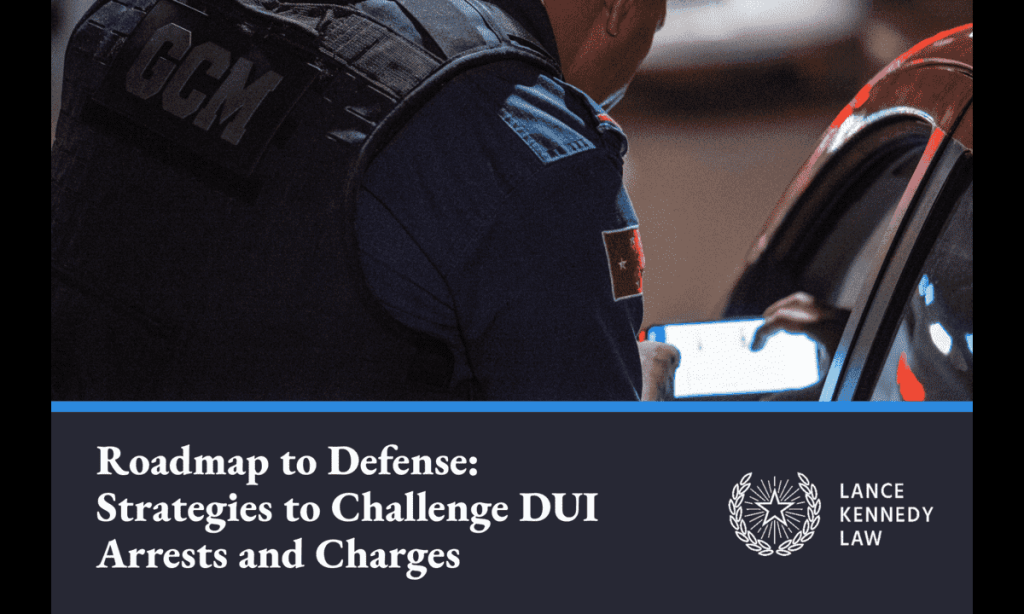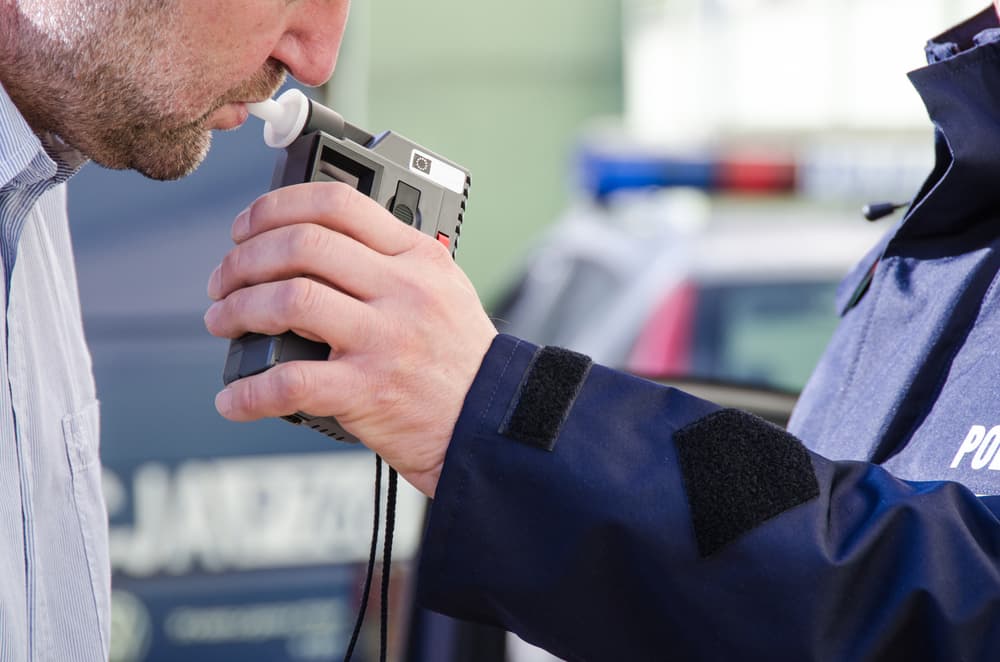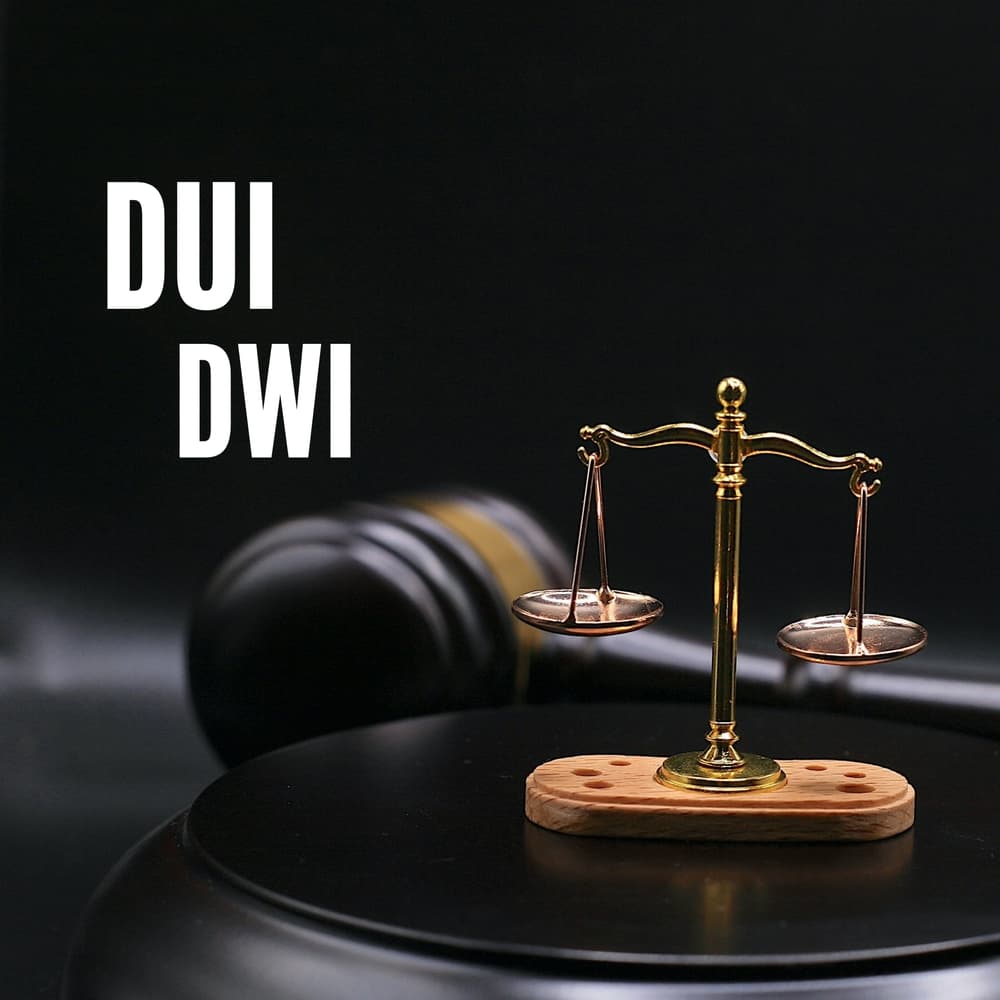
Driving While Intoxicated – or DWI – can lead to serious penalties and collateral consequences upon conviction. Challenging a DWI arrest and charges involves several important strategies.
A skilled DWI defense attorney may argue that the traffic stop was unlawful, question the accuracy of the breathalyzer or blood tests, or highlight any improper procedures during the arrest. They can also use your medical conditions to explain signs of impairment or present evidence showing you were not impaired at the time of driving.
By employing these strategies, an experienced criminal defense attorney can significantly strengthen your defense and improve your chances of a favorable outcome.
Elements of a DWI Charge that a Prosecutor Must Establish

To secure a conviction for DWI in most jurisdictions, prosecutors must establish several key elements beyond a reasonable doubt, including the following:
- Driving or Operating a Vehicle – The first element that prosecutors must prove is that the defendant was driving or operating a vehicle at the time of the alleged offense. This can include not only traditional cars but also motorcycles, trucks, and other motor vehicles. Evidence can come from eyewitness testimony, police reports, or even surveillance footage showing the defendant behind the wheel.
- Intoxication Level – The second critical element is demonstrating that the defendant was intoxicated. Intoxication can be established in various ways. Most commonly, prosecutors use blood alcohol concentration (BAC) tests. In most jurisdictions, a BAC of 0.08 percent or higher is considered legally intoxicated for drivers who are 21 and over. However, even lower levels can lead to a DWI charge if the defendant shows signs of impairment.
- Impairment of Ability to Drive Safely – In addition to proving intoxication through BAC, the prosecution must also show that the defendant’s ability to drive safely was impaired due to alcohol or drugs. This can involve presenting evidence of erratic driving behavior, such as swerving, speeding, or failing to obey traffic signals. Testimony from law enforcement officers who observed the defendant’s driving can support this element.
- Mental or Physical Condition – The prosecutor may need to establish that the defendant was under the influence of alcohol or drugs, which affected their mental or physical condition. This can include field sobriety tests, where the officer assesses coordination and balance, as well as observations about the defendant’s speech, demeanor, and behavior.
- Knowledge of Intoxication – Lastly, the prosecution may need to prove that the defendant knew or should have known that they were intoxicated. This element can sometimes be challenging to demonstrate – especially if the defendant claims they did not realize their level of impairment.
Each element plays an important role in determining the outcome of a DWI case, and understanding them can help defendants better prepare their defense.
What Happens if You’re Convicted of DWI?
Being convicted of DWI can lead to serious penalties and collateral consequences that significantly affect a person’s life. Some of the most common include:
- Legal Penalties – The most immediate consequence of a DWI conviction is legal penalties. These can vary depending upon the state and the specifics of the offense. For a first-time offender, penalties may include fines ranging from $500 to $2,000, and possible jail time from a few days to several months. Subsequent offenses often lead to harsher penalties, including longer jail sentences, higher fines, and mandatory participation in alcohol education or treatment programs.
- License Suspension – A DWI conviction typically results in the suspension of the driver’s license. For a first offense, this suspension may last anywhere from 90 days to a year. For repeat offenders, the suspension period can extend for several years. Losing driving privileges can complicate daily life, making it difficult to commute to work, school, or other important appointments.
- Increased Insurance Rates – Another consequence of a DWI conviction is a significant increase in car insurance premiums. Insurance companies view a DWI as a high-risk behavior, leading to higher rates or even a denial of coverage. This financial burden can last for years, making it essential to factor in these costs when considering the long-term effects of a DWI.
- Employment Consequences – A DWI conviction can also affect employment opportunities. Many employers conduct background checks, and having a DWI on your record can lead to job loss or difficulties finding new employment. Certain professions, especially those involving driving or operating heavy machinery, may be particularly affected, as employers may have strict policies regarding alcohol-related offenses.
- Social Consequences – Beyond legal and financial repercussions, there are social consequences to consider. A DWI conviction can lead to strained relationships with friends and family, as well as a damaged reputation in the community. Some individuals may face stigma or judgment from others, which can affect social interactions and support networks.
- Additional Programs – In some cases, courts may require individuals to complete community service, attend counseling sessions, or participate in alcohol education programs. These programs can be time-consuming and may involve additional costs.
An experienced criminal defense attorney will do everything in their power to reduce or eliminate the potential penalties and collateral consequences you may face following a DWI conviction.
Challenging a DWI Charge

When facing a DWI charge, it’s essential to explore various legal defenses that may challenge the prosecution’s case. Understanding these defenses can provide a stronger foundation for your case and potentially lead to a dismissal or reduced charges.
- Improper Traffic Stop – One common defense is arguing that the initial traffic stop was unlawful. Law enforcement officers must have probable cause to stop a vehicle. If the officer did not observe a traffic violation or had no reasonable suspicion of illegal activity, any evidence obtained during the stop may be inadmissible in court. Challenging the legality of the stop can weaken the prosecution’s case.
- Faulty Breathalyzer Tests – Breathalyzer tests are frequently used to determine a driver’s blood alcohol concentration (BAC). However, these devices can produce inaccurate results if not properly calibrated or maintained. Additionally, factors such as medical conditions or the consumption of certain substances (like mouthwash or breath sprays) can affect the readings. If you can demonstrate that the breathalyzer test was faulty or improperly administered, it may undermine the prosecution’s evidence.
- Field Sobriety Test Issues – Field sobriety tests (FSTs) are subjective assessments that officers use to gauge a driver’s impairment. However, these tests can be influenced by various factors, such as poor weather conditions, uneven surfaces, or physical limitations unrelated to alcohol consumption. If you can provide evidence that the tests were conducted improperly or that external factors affected your performance, this can support your defense.
- Medical Conditions – Certain medical conditions can mimic the signs of intoxication, such as slurred speech, poor coordination, or bloodshot eyes. If you have a medical condition that may have contributed to these symptoms, it can be a valid defense against DWI charges. Providing medical documentation or expert testimony can help to substantiate this claim.
- Rising BAC Defense – This defense argues that the driver’s BAC was below the legal limit at the time of driving, but it increased between the time of driving and when the test was administered. If you can establish that your drinking occurred after driving, this may create reasonable doubt about your level of intoxication during the actual operation of the vehicle.
- Lack of Impairment Evidence – Finally, demonstrating that there was no impairment at the time of driving can be a powerful defense. If there is no evidence of erratic driving, poor coordination, or other signs of intoxication, the prosecution may struggle to prove their case.
Legal Options in a DWI Case
When facing a DWI charge, defendants have several legal options to consider, each with its own potential outcomes. Understanding these options can help individuals make informed decisions about how best to proceed with their case.
- Going to Trial – One possible option is to take the DWI case to trial. This route involves contesting the prosecution’s evidence and challenging their claims of guilt. During a trial, both the prosecution and the defense present their arguments, call witnesses, and submit evidence. The burden of proof lies with the prosecution, which must establish the defendant’s guilt beyond a reasonable doubt. A trial can be a lengthy and complex process, but it may be the best option if the evidence against you is weak or if there are significant defenses that can be raised. If found not guilty, the charges will be dismissed, but if convicted, the penalties may be more severe.
- Plea Bargaining – Another common option is to pursue a plea deal with the state prosecutor. This involves negotiating a settlement in which the defendant agrees to plead guilty to a lesser charge in exchange for a reduced sentence or penalties. Plea bargains can be advantageous, especially for first-time offenders, as they may lead to more lenient consequences, such as lower fines or a shorter license suspension. Accepting a plea deal can also save time and the stress associated with a trial. However, it’s essential to fully understand the implications of accepting a plea, including the potential effect on your criminal record.
- Deferred Adjudication or Pretrial Diversion – Some jurisdictions offer programs like deferred adjudication or pretrial diversion for first-time offenders. These programs allow defendants to complete certain requirements, such as community service or alcohol education classes, in exchange for having the charges dismissed upon successful completion. This option can prevent a DWI conviction from appearing on the individual’s record, making it a favorable choice for those seeking to avoid long-term consequences.
Regardless of the option chosen, it’s important to consult with a qualified DWI defense attorney. An experienced lawyer can evaluate the strengths and weaknesses of your case, explain the potential outcomes of each option, and advocate on your behalf during negotiations or trial proceedings.
How Can a Skilled DWI Lawyer Help?

A skilled DWI attorney plays a vital role in navigating a DWI case. Their legal knowledge can significantly affect the outcome, helping defendants understand their rights and options while striving for the best possible results. Here are several ways a DWI lawyer can assist you:
- Legal Skill – DWI laws can be intricate and vary by state. An experienced DWI lawyer is well-versed in these laws and understands the nuances of the legal system. They can explain the charges you are facing, the potential penalties upon conviction, and the legal processes involved. This knowledge empowers you to make informed decisions throughout your case.
- Case Evaluation – A skilled lawyer will conduct a thorough evaluation of your case. They will review the evidence, including police reports, breathalyzer or blood test results, and any witness statements. By analyzing the facts, your lawyer can identify weaknesses in the prosecution’s case, such as improper procedures during your arrest or issues with the accuracy of testing devices.
- Defense Strategies – Based on the evaluation, your lawyer can develop a strong defense strategy tailored to your specific situation. This may involve challenging the legality of the traffic stop, disputing the validity of the breathalyzer test, or arguing that you were not impaired at the time of driving. A well-crafted defense can lead to reduced charges or even case dismissal.
- Negotiating Plea Deals – If going to trial is not in your best interest, a skilled DWI lawyer can negotiate with the prosecutor on your behalf. They can advocate for a favorable plea deal that may involve reduced charges or lighter penalties. Having an experienced negotiator can significantly improve your chances of securing a more lenient outcome.
- Representation in Court – If your case goes to trial, having a lawyer who is experienced in DWI cases is invaluable. They will represent you in court, presenting your defense, cross-examining witnesses, and arguing against the prosecution’s evidence. Their familiarity with court procedures and ability to articulate your case can make a significant difference in the trial’s outcome.
- Emotional Support – Facing a DWI charge can be stressful and overwhelming. A skilled lawyer not only provides legal assistance but also offers emotional support throughout the process. They can help you manage anxiety and uncertainty, allowing you to focus on the road ahead.
Talk with an Experienced DWI Defense Attorney Today
If you are currently facing a DWI charge, a knowledgeable criminal defense attorney can be extremely helpful. A lawyer can assert one or more defenses on your behalf in court or negotiate a favorable plea deal with the state prosecutor. Your Austin criminal defense lawyer will do everything they can to help you achieve a favorable result in your DWI case.
